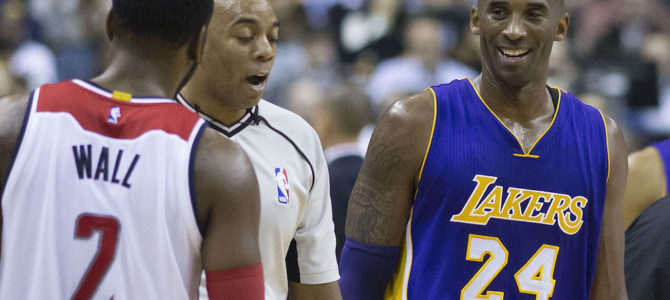
The ink was barely dry on headlines announcing Kobe Bryant’s sudden death in a helicopter crash Sunday before Twitter started buzzing with reminders about the 2003 rape allegations against him.
Just hours after news broke about the crash, which also killed Bryant’s 13-year old daughter and seven others, Washington Post reporter Felicia Sonmez tweeted a link to a 2016 Daily Beast story recounting the 17-year-old rape case.
In a series of follow-up tweets (now deleted) Sonmez unintentionally captured the depressing zero-sum spirit of woke cancel culture, writing, “Any public figure is worth remembering in their totality even if that public figure is beloved and that totality unsettling.”
Sonmez wasn’t alone. A host of blue checkmarks were eager to remind everyone about the 2003 allegations and how “problematic” Bryant was—lest anyone get carried away mourning his untimely death. Self-proclaimed moral philosopher Stefan Molyneux went out of his way to tell us he judges Bryant not on his athletic abilities but “morally,” and that we shouldn’t pretend “that the world lost some kind of moral hero.”
Well, Molyneux and the others can rest easy knowing that in 2020 no public figures can die without immediate condemnations of the worst moments of their life—or at least a stern reminder of how un-woke they were. (Hence the New York Times obituary earlier this month for former Cincinnati Bengals coach Sam Wyche that noted in the subhead and the opening sentence that Wyche was once fined by the NFL for barring a female reporter from the team’s locker room.)
Bryant, Like Everyone, Was More Than His Worst Mistakes
This is a poisonous way of thinking, not just because it reduces complicated people to their worst blunder but because it implicitly denies the possibility of redemption, that people who have made mistakes, even terrible mistakes, really can turn their lives around.
The irony is that Bryant’s life was a testament to this great truth. In 2003 he was accused, at age 24, of rape by a 19-year-old woman who worked at a Colorado spa and lodge. The case that was widely publicized and ultimately dismissed, and a separate civil suit was settled with his accuser out of court. Before it was all over, Bryant made a tearful public admission of adultery, issued an apology to the young woman explaining that he thought their encounter had been consensual, and lost most of his commercial endorsements.
For those who feel the need to remind us of this case in the wake of Bryant’s death, what he did with the next 17 years of his life doesn’t matter all that much.
It doesn’t matter that he managed, years later, to save his marriage. It doesn’t matter that he went on to become a devoted father to his four daughters. It doesn’t matter that in middle age he seemed to have rediscovered his Catholic faith, which he credited with helping him through a dark time in the life of his family. It certainly doesn’t matter that he recovered from his 2003 ordeal and became one of the greatest NBA players of all time.
All that matters is that he was a famous and powerful man who was once accused of rape, and when we think of him, we should think only of that.
Same Goes For Tiger Woods and Kanye West
The same could be said of other famous public figures. Think of Tiger Woods, who in 2009 seemed to lose everything—his marriage, his career, his reputation. He, too, issued a gut-wrenching public apology, admitting to adultery and saying that he had “stopped living by the core values” he was taught by his parents. “I knew my actions were wrong, but I convinced myself that normal rules didn’t apply,” he said.
He, too, lost his sponsorships. But unlike Bryant, he left professional sports for a time, checking into a Mississippi addiction clinic. He was plagued by injuries and it looked like his career was over. A 2017 arrest on a DUI charge turned up a harrowing police mug shot of a haggard Woods—a shadow of the former golf champion.
Just two years later, at age 43, he staged one of the greatest comeback in all of sports, winning his fifth Masters last year—his 15th major title and the first in more than a decade. He celebrated with his two children, mother, and girlfriend. “To have my kids there, it’s come full circle,” he said. “My dad was there in 1997 and now I’m the dad with two kids there.”
The same could be said of any number of famous sports stars and celebrities who have at some point caved to their worst impulses or assumed the rules of life didn’t apply to them. Some, like Kanye West, have struggled through the dismay and disillusionment of their past mistakes in a very public and visceral way. Over the past year, West has taken heat for his countercultural views on everything from President Trump to Jesus Christ, and embraced the rediscovery of his Christian faith.
None of this means we should hold up NBA players and rappers as moral authorities or role models. But it does mean we should remember that public figures are human beings with complicated lives. When they fail, often they fail publicly—something most us will never have to face.
When they manage to put their lives back together and find redemption, whether in family or faith or charity, that’s something worth noting. Certainly, it’s far more important than the worst thing they ever did.









